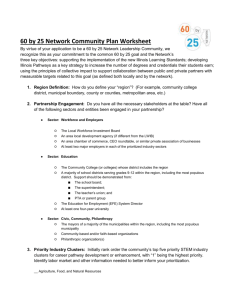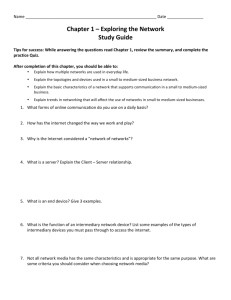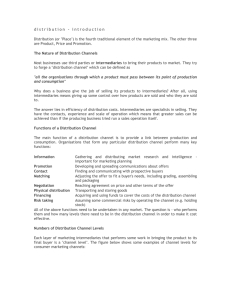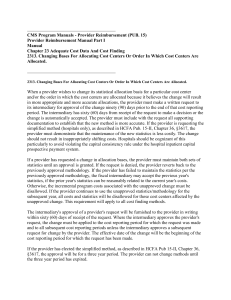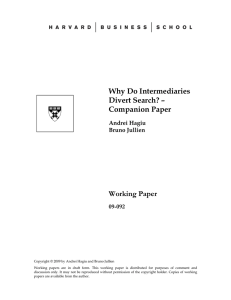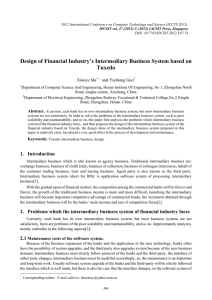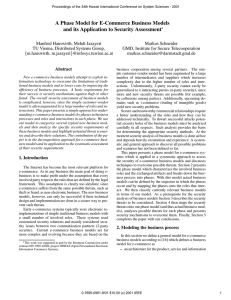Opdracht 1 bij Intermediary Devices: vertaal, voor zover de
advertisement
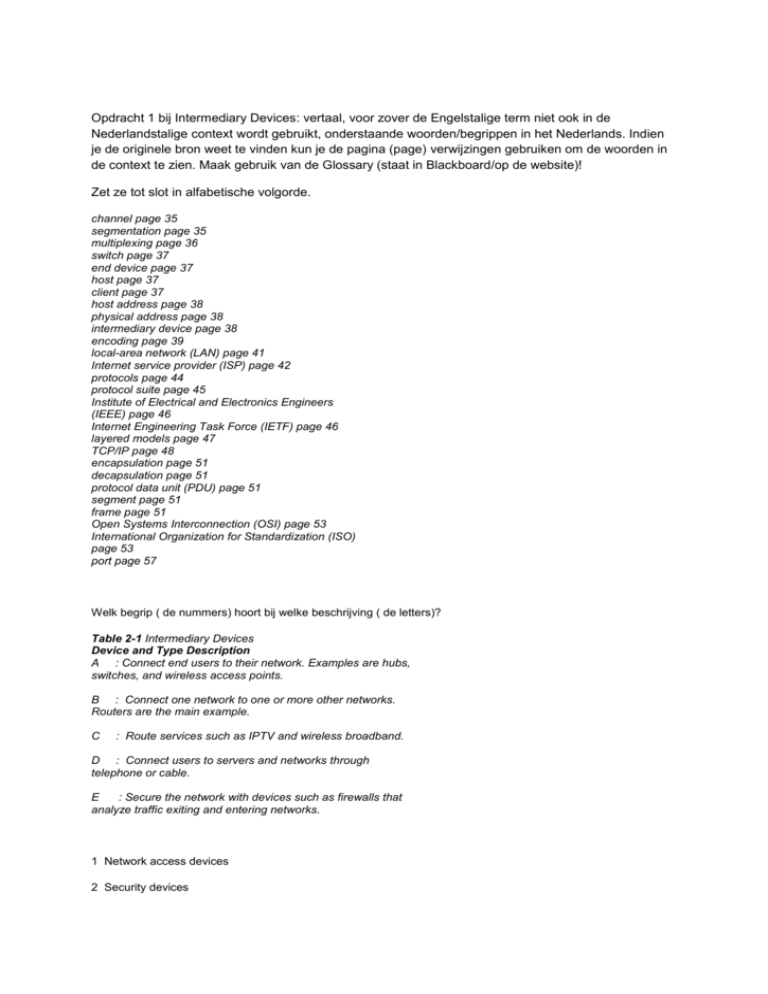
Opdracht 1 bij Intermediary Devices: vertaal, voor zover de Engelstalige term niet ook in de Nederlandstalige context wordt gebruikt, onderstaande woorden/begrippen in het Nederlands. Indien je de originele bron weet te vinden kun je de pagina (page) verwijzingen gebruiken om de woorden in de context te zien. Maak gebruik van de Glossary (staat in Blackboard/op de website)! Zet ze tot slot in alfabetische volgorde. channel page 35 segmentation page 35 multiplexing page 36 switch page 37 end device page 37 host page 37 client page 37 host address page 38 physical address page 38 intermediary device page 38 encoding page 39 local-area network (LAN) page 41 Internet service provider (ISP) page 42 protocols page 44 protocol suite page 45 Institute of Electrical and Electronics Engineers (IEEE) page 46 Internet Engineering Task Force (IETF) page 46 layered models page 47 TCP/IP page 48 encapsulation page 51 decapsulation page 51 protocol data unit (PDU) page 51 segment page 51 frame page 51 Open Systems Interconnection (OSI) page 53 International Organization for Standardization (ISO) page 53 port page 57 Welk begrip ( de nummers) hoort bij welke beschrijving ( de letters)? Table 2-1 Intermediary Devices Device and Type Description A : Connect end users to their network. Examples are hubs, switches, and wireless access points. B : Connect one network to one or more other networks. Routers are the main example. C : Route services such as IPTV and wireless broadband. D : Connect users to servers and networks through telephone or cable. E : Secure the network with devices such as firewalls that analyze traffic exiting and entering networks. 1 Network access devices 2 Security devices 3 Internetwork devices 4 Modems 5 Communication servers Opdracht: Hoe zou je onderstaande tekst in simpeler Engelse kunnen verwoorden? Begin met onderstaande tekst in het Nederlands te vertalen en het daarna in eenvoudiger Nederlands te zeggen. Intermediary Devices and Their Role on the Network End devices are the hosts that initiate communications and are the ones that people are most familiar with. But getting a message from the source to the destination can be a complex task involving several intermediary devices along the way. Intermediary devices connect the individual hosts to the network and can connect multiple individual networks to form an internetwork. Intermediary devices are not all the same. Some work inside the LAN performing switching functions, and others help route messages between networks. Table 2-1 lists some intermediary devices and their functions. The management of data as it flows through the network is also a role of the intermediary devices. These devices use the destination host address, in conjunction with information about the network interconnections, to determine the path that messages should take through the network. Processes running on the intermediary network devices perform these functions: ■ Regenerate and retransmit data signals ■ Maintain information about what pathways exist through the network and internetwork ■ Notify other devices of errors and communication failures ■ Direct data along alternate pathways when there is a link failure ■ Classify and direct messages according to quality of service (QoS) priorities ■ Permit or deny the flow of data, based on security settings
